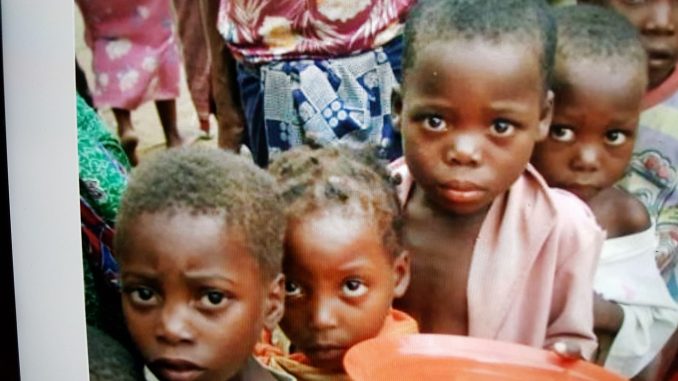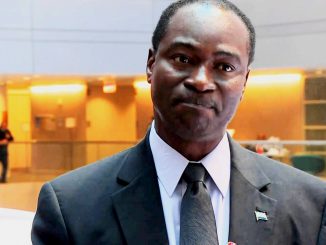
By KABS KANU
During my interview with the Minister of Finance, Hon. Momodu Kargbo, he spoke about poverty reduction in Sierra Leone. This report , which is Part 3 of the series will be published tomorrow.
One issue raised by the minister, that people are not looking at, which we must take seriously if we must reduce poverty in Sierra Leone is FAMILY PLANNING.
Regardless of whatever social programs the government rolls out, the public will not benefit from if they continue to create more problems for themselves and society by having so many children and so many mouths to feed, due to lack of family planning.
Sierra Leoneans must learn to cut their coats according to their sizes. If you are a poor labourer earning minimum wage, you certainly will not enjoy any economic boom in the country if you have eight or more mouths to feed. Even educated elite holding good positions will strain to maintain a large family of kids and wives, however high their salaries. Children are very expensive to upkeep. However much they are paid, they will not be able to live good lives if they have too many kids to feed, clothe and educate., because all these services require money.
Some labourers know they are not making good salaries, yet they marry many wives and produce a very large number of children. Many Sierra Leoneans have more than one wife and it is customary to see families with 11 or more children.
When there is no family planning and children keep being born now and again, it creates other serious socioeconomic problems. Children are not well cared for or provided with balanced diet and this creates sick children prone to diseases and unpremeditated deaths. Even the poor mother may find her health compromised by overuse in having too many children. Some of the maternal deaths in the country are due to misuse of the female body and poor upkeep of pregnant wives due to lack of resources and poverty imposed by the problem of too many mouths to feed.
When poverty spreads in a country, the government gets blamed but how many people take prudent decisions to cuts their coats according to their sizes ?
These are taboo issues like Bondo and Sierra Leoneans are very sensitive about them. Some people argue that culturally, it is abhorrent to talk about trying to limit a man’s God-given opportunity and ability to continue having children. Even the idea of taking two or more wives is given such cultural and religious significance, it is at times difficult to discuss it without being misunderstood, but reality is reality. In TODAY’S world, and the economic constraints, it is not wise to have many wives and many children, except you are a tycoon . It will aggravate economic and health problems.
The Minister also made a great point that people should go into farming. It is surprising to learn that Sierra Leone has over 75% arable land but only 20% is utilized for farming. What it means is that farming is under-utilized in Sierra Leone. Most able-bodied youth and men have abandoned the provinces to come to the city to look for office jobs. How many people can the government and private companies really employ ?
When they cannot get jobs, these youths and men remain unemployed or become under-employed, doing menial jobs that are not able to sustain them or engage in selling pepper pints and women’s panties on the streets, out of which they make very ridiculous profits or none at all. They then become social problems, blaming government for their predicaments.
The fact of the matter is that Sierra Leoneans must learn to live within their means and try to be productive by getting into farming and other profitable ventures.
No poverty alleviation plan will work if people do not plan their families and stop creating too many mouths to feed or if they do not diversify from reliance on office jobs to the blue-collar economy– farming, business and artisanship.
IT is a sad fact to accept, but our habits themselves undermine efforts to alleviate poverty in the country.



